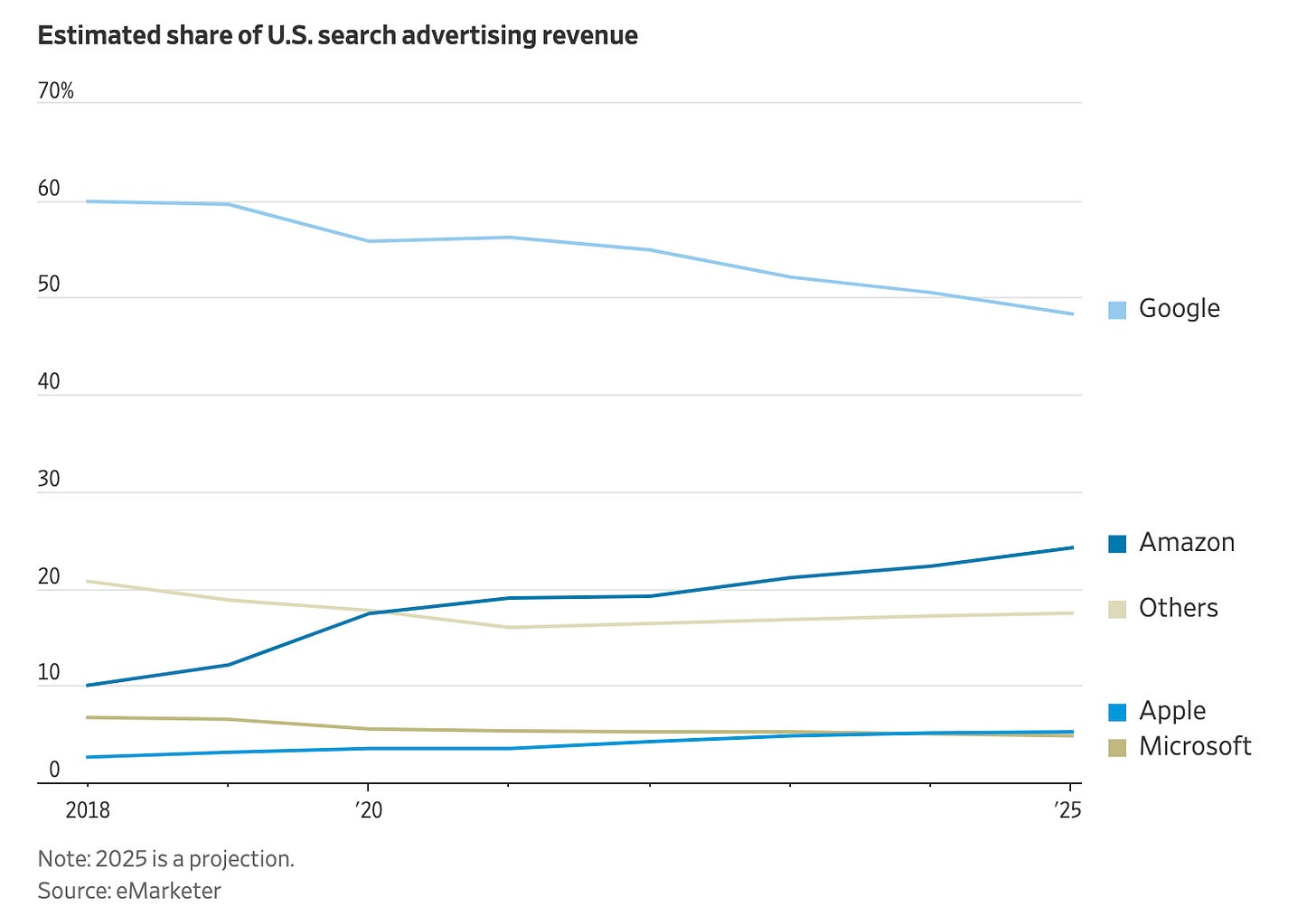#232: Will AI Propel or Disrupt Your Business?
The answer might lie in your ability to build a plan to enable AI at the core of your business, where your differentiation lives.

The Athens Workshop
In the first week of October over a hundred clients of TCS joined us in Athens for our annual summit, and I had the privilege of co-hosting an AI workshop for some of them along with my colleagues Lalit and Nilesh from our Pace innovation team in Amsterdam. As a part of the workshop we asked everybody to introduce themselves by also sharing one thing that they would like AI to do and /or not do. You’ve all seen that meme about how we want AI to do the chores, so we can do the creative work, and not the other way around, so I was expecting a similar theme here. What I found really fascinating about this was that often the same things appeared on both sides - some people said they wanted AI to drive their cars, while others said that the one thing they wanted to do themselves was drive their own car. There were plenty of these kinds of activities, including for instance cooking, and writing.
What Do We Really Care About?
And that insight at the workshop led me to an interesting observation. Ultimately if AI can do “everything” (and of course, everything is metaphorical in this sentence), we will need to think more deeply about what we are emotionally invested in - so that we can choose what we want to do ourselves. If cooking gives you joy and you find driving a chore, than AI can do your driving and free you up to do more cooking. And this is another reminder that AI will see a resurgence of philosophy, as we will find ourselves thinking more deeply about the purpose of our lives. In fact we should probably all think about creating a manifesto for our lives - what is your life about? What does your existence mean to you, your family, your community, and the world? (I’ve tried this, it’s quite a reflective experience!)
It’s the analogy of the infinite library. If every book every written is available to you, how do you choose what to read? Ultimately you have to look inwards. To put it another way, in the world of AI, the real value is in asking the right questions.
What About Organisations?
I then considered how this concept translates to the organisational context—what's the equivalent of emotional investment for an enterprise or organisation? This led me to the simple classification below. Assuming AI can "do everything," what then? We should probably consider what makes our business unique. What's our secret sauce? What do we differentiate ourselves on? Is it customer service? Supply chain efficiency? Low cost? Strong brand value? Once we know what activities fall into this category, we can look at the second axis, which asks: does somebody else have an AI based model that can do this better than us? Or is our combination of Humans and AI better than what’s out there? This is a very critical question and needs diligence and research to answer - not once, but repeatedly, every few months.
If there’s somebody out there who has an AI solution that can do better what you consider your core differentiator, it’s really time to worry. You need to find a way to get better, or partner, or find an alternative differentiator, else you’re heading for disruption. As an analogy, think of a retailer focused on the convenience of shopping in a world before Amazon Prime.
If you have your own AI in your core area of differentiation - you should double down on it - cannibalise your own business (before others catch up), and extend your lead over the competition. Or if your human based capabilities are ahead of any AI (yes, I know, this is a contradiction to the ‘AI can do everything’ premise) - then keep investing in it or use this knowledge and expertise to create your own advanced AI model.
But if there are great AI tools and AI based businesses that can do a great job of things which are not at the core of your business/ proposition, then don’t fret. Partner, outsource, and take advantage of the value in those models. Needless to say, if it’s non core and there is no AI model in sight, just wait till one comes along, and for the purposes of this conversation, ignore.
This is model is also an important reminder of the need to be clear about what truly is on the right hand side of your model. And question ourselves about whether it needs to change, if it’s under threat.
The ‘Nobel’ Cause
This point was really brought home to me in the example of this year’s Nobel Prize awards. They say that you won't lose your job to AI but you might lose it to a human who works with AI. Nobel Prize aspirants this year might reflect on that neologism. As you may know, Geoffrey Hinton and John Hopfield won the Nobel Prize for physics while Demis Hassabis, John Jumper, and David Baker won the chemistry Nobel Prize. Four of the five are actually AI Scientists, who are neither physicists, not chemistry researchers. Only David Baker qualifies as a pure science researcher.
Winning the Nobel Prize isn't a 'job' or the operating model of any organisation, but it's definitely a seminal moment as it means that breakthrough research can be done by AI Researchers in fields they may not actually be experts in. This should cause the research community to pause and reflect. And at a broader level every one of us who believe that actually our job requires some great human capability should think more deeply about what it is that we do that can't be done by an AI (or a combination of AI tools) in future. Specifically, we should focus on the most valuable parts of our work and how we can stay ahead, or become the person that uses AI and our existing competence to get further ahead.
Organisationally speaking, pharmaceutical or materials companies who depend on research, must already be quite committed to using AI to keep them ahead of the game. If they didn’t they would be sitting ducks for disruption. I also heard one of our clients speaking at the TCS summit about how the design of new molecules used to take 10 years but now takes two, thanks to their AI solutions.
The Short/ Long View
Judging by anecdotal evidence, we seem to have reached the trough of disillusionment with AI already as a lot of businesses are questioning their investments and looking for payback within a year of investment. I believe this is broadly true where AI deployment has had a scattergun approach. I think we’re in the quintessential stage of overestimating the impact of AI in 2 years and underestimating the potential for transformation in 10. For organisations taking a considered view of deploying AI to deepen their differentiators, the game has just begun.
AI Reading
AI / Marketing tools such as Scop are starting to go mainstream (Fast Company)
Google’s advertising revenues are being hit by direct search on product / ecommerce sites and Tiktok. (WSJ)
More Reflections on AI dominating the Noble Prize:
Geoffrey Hinton: “If there was a Nobel Prize for computer science, our work would clearly be more appropriate for that. But there isn’t one.” Interview with the NYT.
Other Reading
Life Expectancy: There is an argument that life expectancy increases are slowing down and barring medical break throughs, we shouldn’t expect lifespans to keep increasing. This Nature article has been widely quoted and generally is a good view of the present. But the reality is that medical breakthroughs are happening regularly, and some might even say accelerating. What then? (Nature, NYT)
Tesla Underwhelms with its Robotaxi announcement. And the robots aren’t as automomous either. (Qz.com)
Futures toolkit: There are so many great resources for help you with innovation - here’s one more of them. This is a futures toolkit to help you to think about creating future scenarios. (Gov.uk)
News Overload: A reflective read on the impact of the 24x7 cycle of news being piped into our brains via our permanent connectivity. (Guardian)
Benford’s Principle: Thanks to a fortuitous connection with Mihaela Cretu at the TCS Summit, learnt 2 interesting things in 15 minutes. The first was about Benfords Principle - which is about the distribution of numbers (specifically about the first digit) of apparently any large group of numbers. It also reminded me about Zipf’s Law which deals with the distribution of words in any large volume of text - from annual reports to the bible. (Wikipedia)
Mycelium: this was the other thing I learnt about - the idea that Mycelium might be a means of communication between trees in a forest. I say might because there is some debate about this. (Scientific American)
Tech Confidence index: Tech Market View have recently published their first Tech Confidence Index - I wonder if it will prove to be a bellwether for overall business confidence or perhaps a lead / lag indicator?
Embarrassment and it’s function: a quick and interesting read about the value of embarrassment, the distinction with shame, and the purpose it serves for society and communities.
thanks for reading and see you soon.
Ved






Top reflections as ever .. AI has been hovering for decades and I suppose it is the GEN AI arrival on the scene which has take it to a rise of inflated expectations and here again the experts see this as a enhancement of work effort , an aid than something that eliminates the Human .. Yet there are experts and those with capital ploughing significant sums into a breakthrough moment of reaching Singularity .. We live in such interesting and yet unsettling times .